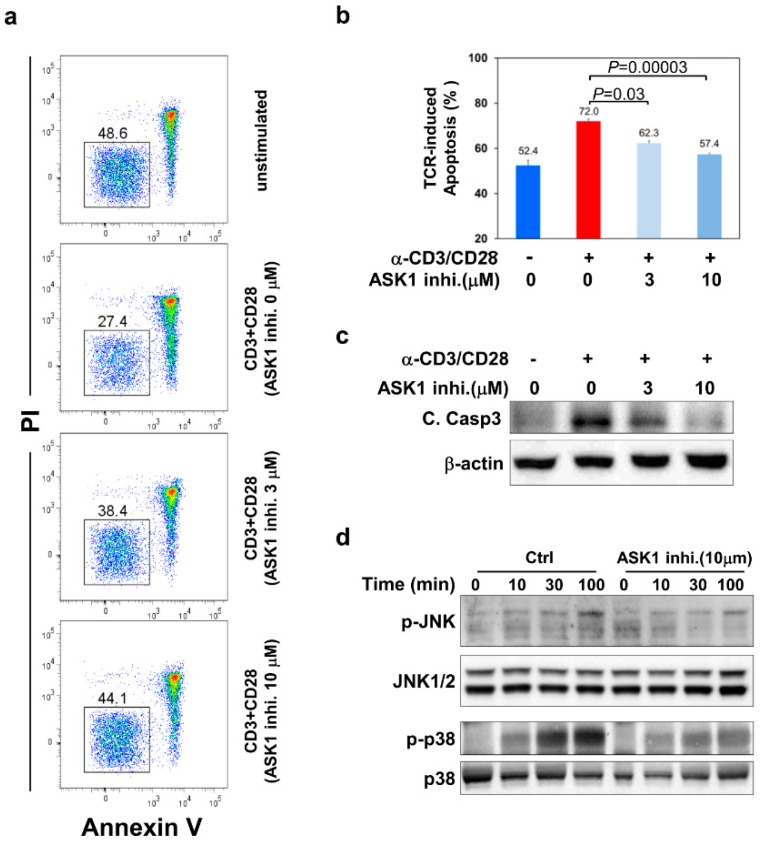Figure 2.
The ASK1- JNK/p38 pathways are critical for TCR-induced apoptosis of thymocytes. Thymocytes were either unstimulated or stimulated with anti-CD3 (10 μg/mL) and anti-CD28 (1 μg/mL) antibodies for 16 h in the absence or presence of 3 or 10 μM of the ASK1 inhibitor (2,7-Dihydro-2,7-dioxo-3H-naphtho[1,2,3-de]quinoline-1-carboxylic acid ethyl ester, ASK1 inhi.). (a) Cells were harvested and stained with Annexin V and PI, followed by flow cytometric analysis to detect Annexin V-PI- live cells. (b) The percentage of dead cells (100% - live cells %) was quantified based on the flow cytometric analysis. (c) Attenuation of TCR-induced caspase-3 activation by the inhibition of ASK1. Whole cell lysates from thymocytes cultured under the same conditions as in (a) were extracted and subjected to immunoblotting to determine caspase-3 activation by detecting the amount of cleaved caspase-3 (C.Casp3). An anti-β-actin blot was included as the loading control. (d) The TCR-induced activation of JNK and p38 is suppressed by the inhibition of ASK1. Thymocytes were stimulated with anti-CD3 (10 μg/mL) and anti-CD28 (1 μg/mL) antibodies for different periods of time, as indicated in the absence or presence of 10 μM of the ASK1 inhibitor. Whole cell lysates were harvested and subjected to immunoblotting to examine the phosphorylation status of JNK and p38. The amount of JNK and p38 was also detected and included as loading controls. The data shown are representative of more than three independent experiments (a,c,d). The bar graph is shown as the mean ± SD (n = 3 for b).

